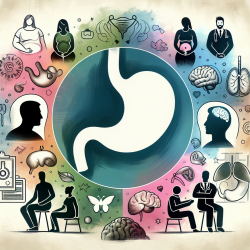The demanding nature of emergency medicine places healthcare professionals at a significant risk of developing compassion fatigue (CF). This condition, characterized by a diminished ability to empathize or feel compassion for others, arises from chronic exposure to traumatic events and workplace stressors. The research article "Compassion Fatigue in Emergency Medicine: Current Perspectives" offers valuable insights into understanding and mitigating CF among emergency physicians (EPs).
The Impact of Compassion Fatigue
Compassion fatigue can severely affect both healthcare providers and their patients. For practitioners, CF may lead to emotional exhaustion, depersonalization, depression, anxiety, and even substance abuse. These effects not only compromise the well-being of healthcare workers but also diminish the quality of care provided to patients. Patients may experience reduced satisfaction and trust in their care providers, potentially leading to poorer health outcomes.
Strategies for Individuals
To counteract CF, EPs should focus on enhancing their resilience through various personal strategies:
- Cognitive Behavioral Techniques: Engage in cognitive behavioral therapy (CBT) to develop coping strategies and emotional regulation skills.
- Mindfulness Practices: Incorporate mindfulness exercises into daily routines to reduce stress and increase emotional awareness.
- Physical Health: Prioritize physical well-being by maintaining a balanced diet, exercising regularly, and ensuring adequate sleep.
- Pursue Meaningful Work: Seek opportunities for professional growth and development that align with personal values and goals.
- Create Boundaries: Establish clear boundaries between work and home life to prevent burnout.
Organizational Interventions
The responsibility for mitigating CF also lies with healthcare organizations. By addressing systemic issues contributing to burnout, institutions can create a supportive environment for their staff:
- Adequate Staffing: Ensure sufficient staffing levels to manage workloads effectively and allow for recovery time.
- Cultural Support: Foster a workplace culture that values empathy, respect, and open communication among team members.
- Safety Measures: Implement safety protocols to protect staff from primary traumatic stress due to workplace violence.
- Mental Health Resources: Provide access to counseling services and mental health support tailored to the unique needs of EPs.
The Path Forward
Tackling compassion fatigue requires a multifaceted approach involving both individual efforts and organizational changes. By implementing these strategies, practitioners can enhance their resilience against CF, leading to improved job satisfaction and patient care outcomes. Encouraging further research into CF will continue to shed light on effective interventions that benefit both healthcare providers and their patients.
If you're interested in delving deeper into this topic, I encourage you to read the original research paper titled "Compassion Fatigue in Emergency Medicine: Current Perspectives".










